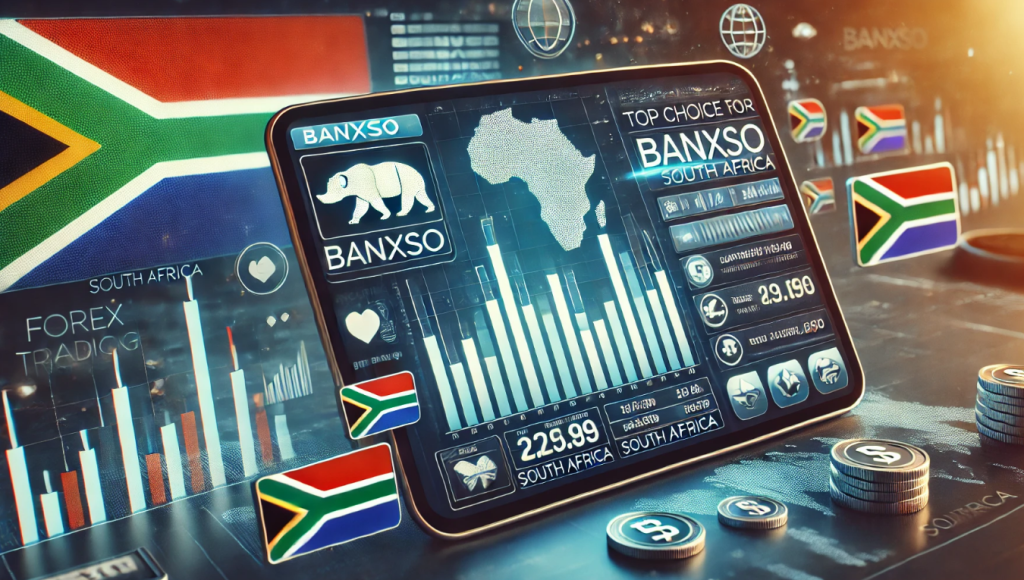Forex trading has gained significant popularity in South Africa over the past decade, and several factors
contribute to this trend. From economic conditions to the accessibility of trading platforms, the allure of forex trading in South Africa is tied to a mix of financial opportunity, technological advancements, and regulatory support. Here’s why forex trading has become such a phenomenon in the country.
Economic Factors and the Volatile Rand
One of the main reasons for the popularity of forex trading in South Africa is the volatility of the
South African rand (ZAR). The rand is known for its significant price fluctuations due to factors such as political instability, economic uncertainty, and global events, particularly movements in commodity prices like gold and platinum. These fluctuations make the ZAR attractive to traders looking to profit from short-term price
movements.
The volatility of the currency creates opportunities for traders to capitalize on these shifts, whether they
are trading the rand against major currencies like the US dollar (USD), euro (EUR), or British pound (GBP). Since currency prices change frequently, especially in emerging markets like South Africa, traders have more chances to make profits.
Accessibility and Availability of Brokers
Forex trading has become accessible to a broader audience in South Africa, largely due to the proliferation
of online trading platforms and brokers. Many of these brokers offer low deposit requirements, allowing even those with limited funds to start trading. Some brokers, like Exness, FXTM, and HotForex, have tailored their services to meet the specific needs of African traders by offering localized payment options such as M-Pesa and MTN Mobile
Money.
Additionally, most brokers provide educational resources, including webinars, tutorials, and demo accounts, to help new traders get started. This accessibility has made forex trading more appealing, as it removes traditional barriers
to entry.
High Leverage Opportunities
South African traders are drawn to the high leverage that forex brokers offer, which allows them to control
larger positions with relatively small amounts of capital. Leverage can amplify profits by allowing traders to multiply their buying power, but it also increases risk. Brokers in South Africa commonly offer leverage ratios from 1:100 to 1:1000, which is much higher than what is typically available in more tightly regulated markets like Europe or the United States.
For South Africans with smaller initial investments, high leverage can be tempting because it opens up the possibility of earning significant returns from a modest amount of capital. While this carries a high level of risk, it is one of the reasons why forex trading is so attractive to those looking for quick financial gains.
Regulatory Support
Unlike in many emerging markets, forex trading in South Africa is regulated by a well-respected financial body, the Financial Sector Conduct Authority (FSCA). The FSCA ensures that brokers operating within South Africa adhere to strict standards to protect traders, including ensuring transparency in trading practices and safeguarding client funds.
This regulatory environment gives traders peace of mind that they are trading with legitimate and accountable brokers. The FSCA’s oversight has made the industry more trustworthy, encouraging more people to participate. South Africa’s robust regulation makes the country stand out compared to other African nations where regulation might be weaker or nonexistent.
Growing Middle Class and Financial Literacy
South Africa has a growing middle class that is increasingly seeking ways to build wealth and diversify
income streams. Forex trading presents a flexible opportunity to achieve these goals. With the rise of financial literacy initiatives and access to educational resources, more South Africans are learning
about how the forex market works, making it an appealing option for those looking to invest their money.
The younger generation, in particular, has shown interest in forex trading. With access to mobile phones and
affordable internet, many are taking advantage of the ability to trade online. Social media and influencer marketing have also played a role in promoting forex trading as a way to earn extra income.
24-Hour Trading Flexibility
One of the significant benefits of forex trading, and a reason for its popularity in South Africa, is the fact that the forex market operates 24 hours a day, five days a week. This is especially appealing to those who have day jobs but want to trade in their spare time. Traders can engage in the market at any hour, whether during the Asian, European, or American trading sessions.
This flexibility makes it possible for traders in South Africa to choose trading times that best fit their
schedules, without needing to worry about market closures, as is the case with traditional stock markets.
Potential for Quick Returns
While forex trading carries high risk, it also offers the potential for quick profits, particularly for those who are well-versed in the market’s dynamics. Many traders are attracted to forex because they can see results within hours or even minutes, depending on their trading strategy. The fast-paced nature of the forex market makes it particularly appealing to individuals looking for short-term gains.
Additionally, with the availability of technical analysis tools and real-time data, traders have more control over their strategies and can quickly act on market opportunities. The ability to analyze charts, price patterns, and
trends allows traders to make informed decisions and potentially profit from market movements in the short term.
Entrepreneurial Spirit and Side Income
Forex trading has become a popular way for South Africans to generate a side income, especially among young entrepreneurs and professionals looking for additional revenue streams. Given the current economic challenges in South Africa, such as high unemployment and inflation, forex trading presents a flexible, low-barrier way to earn money without the need for formal employment.
Many South Africans view forex as a means of financial independence, as they can trade from anywhere with
an internet connection. The idea of making money online, combined with the entrepreneurial spirit that is prevalent in South Africa, has made forex trading particularly attractive.
Final Thougts
The combination of economic factors, accessible technology, high leverage, and a favorable regulatory environment has made forex trading incredibly popular in South Africa. The volatile rand offers frequent trading opportunities, while brokers provide easy access and tools to get started. Additionally, the potential for quick returns and the flexibility of trading around the clock make it an attractive option for individuals looking to supplement their income or pursue financial independence.
While forex trading offers exciting possibilities, it’s essential to remember that the risks are equally significant. Proper education, risk management, and a disciplined approach are crucial to achieving long-term success in the forex market. For many South Africans, forex trading has become more than just a trend—it’s an accessible opportunity for financial growth in a dynamic and ever-changing market.


